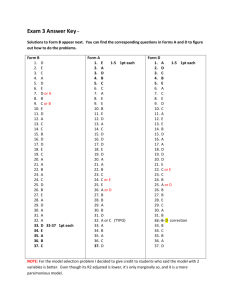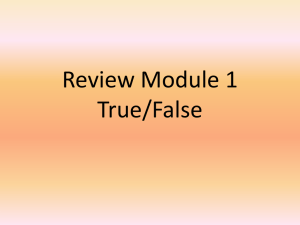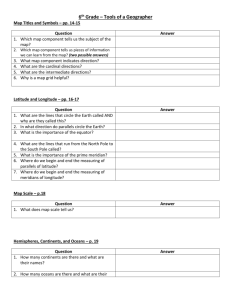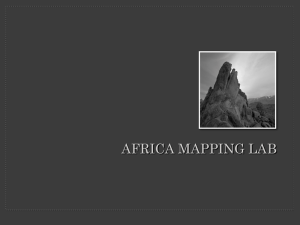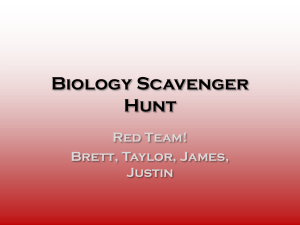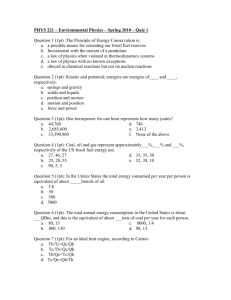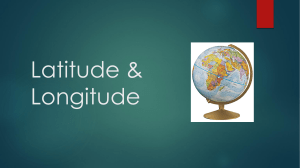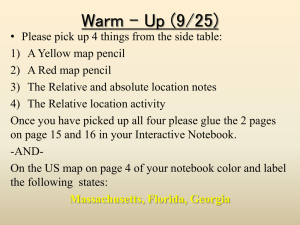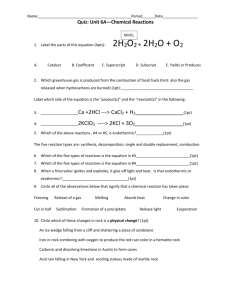First Benchmark
advertisement
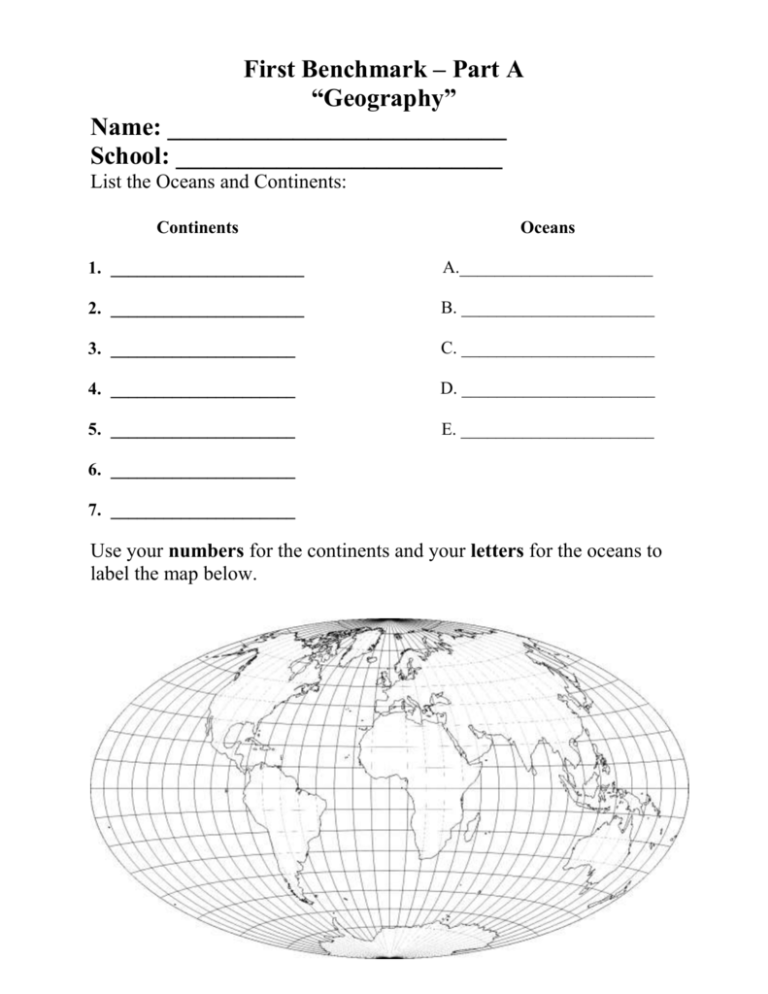
First Benchmark – Part A “Geography” Name: ___________________________ School: __________________________ List the Oceans and Continents: Continents Oceans 1. ______________________ A.______________________ 2. ______________________ B. ______________________ 3. _____________________ C. ______________________ 4. _____________________ D. ______________________ 5. _____________________ E. ______________________ 6. _____________________ 7. _____________________ Use your numbers for the continents and your letters for the oceans to label the map below. On the map below label the following items using the following symbols: 1. NP- North Pole SP – South Pole 4. Lightly shade the western hemisphere yellow. 2. Draw in the equator with a red crayon/marker. 5. Lightly shade the eastern hemisphere orange. 3. Draw in the Prime Meridian with a green crayon/marker. On the map below: 1. Draw in the equator with a red crayon/marker. 2. Lightly shade the northern hemisphere pink. 3. Lightly shade the southern hemisphere blue. Choose the correct answer: The Equator is a line of Latitude, marked with which degree number? A) B) C) D) 180 S° 360 ° 0° 180 N° The Prime Meridian is marked with 0° of Longitude. What do you call the line of Longitude directly on the opposite side of the Earth (180° E or W)? A) Tropic of Cancer B) International Date Line C) Tropic of Capricorn D) Equator The Equator (0° Latitude) runs through which of the seven continents? A) B) C) D) North and South America Europe and Africa Africa, South America, and Asia Africa, Australia and Antarctica On the map below, label the six states and the country that is north of the states. 1. Do lines of latitude run east-west or north-south? 2. Name three states that extend below latitude 30 degrees N (in the contiguous US), and label them on the map. _____________________ _____________________ _____________________ _____________________ 3. Name one US state that is mostly east of longitude 70 degrees W, and label it on the map. _____________________ 4. Name three US states (shown on this map) that extend west of longitude 120 degrees W, and label them on the map. _____________________ _____________________ _____________________ 5. Is the location 45 degrees N latitude, 82 degrees W longitude on land or under water? On the map, mark it with a red X. 6. Name the state that is located entirely between 40-45 degrees N latitude and between 90-100 degrees W longitude, and label it on the map. _____________________ _____________________ Landforms Label the following Landforms using the word bank Archipelago Isthmus Peninsula Bay Island River Gulf Lake Strait First Benchmark – Part B “Lewis and Clark” Name: ___________________________ School: __________________________ 1pt. 1pt. 1pt. 1. What was the primary goal of the Corps of Discovery? 2. Who was President at the time of the journey? 1pt. 3. What was the name of the great expanse of land west of the Mississippi River that the President bought from France? 1pt. 4. How long did the entire journey take? 1pt. 5. On what river did most of the journey take place? 1pt. 6. Who was the wife of Toussaint Charbonneau that traveled with the Corps and helped communicate with the Native Americans? 1pt. 7. One baby was born along the journey. What was his name? 8. Who was William Clark’s slave that traveled with the Expedition? 1 pt. 9. What kind of boats did the Corps use for travel? 1pt . 1pt. 1pt. 1pt. 10. Insects were extremely troublesome during the journey. What was one of the pesky pests that particularly plagued the Corps? 11. What qualities did Lewis look for in the people that he chose to be part of the Corps of Discovery? (List at least three.) 12pt. Write a journal entry as if you were a member of the Corp of Discovery. Choose an important event that made it possible for the success of the Corps. (Ideas: People you met, discoveries that were made, or incidents that could have been a disaster but were averted.) Your entry needs to include specific details such as where it took place, who was involved, what could have happened, and what did happen, and then why this event or circumstance was crucial for the Corps’ success.
